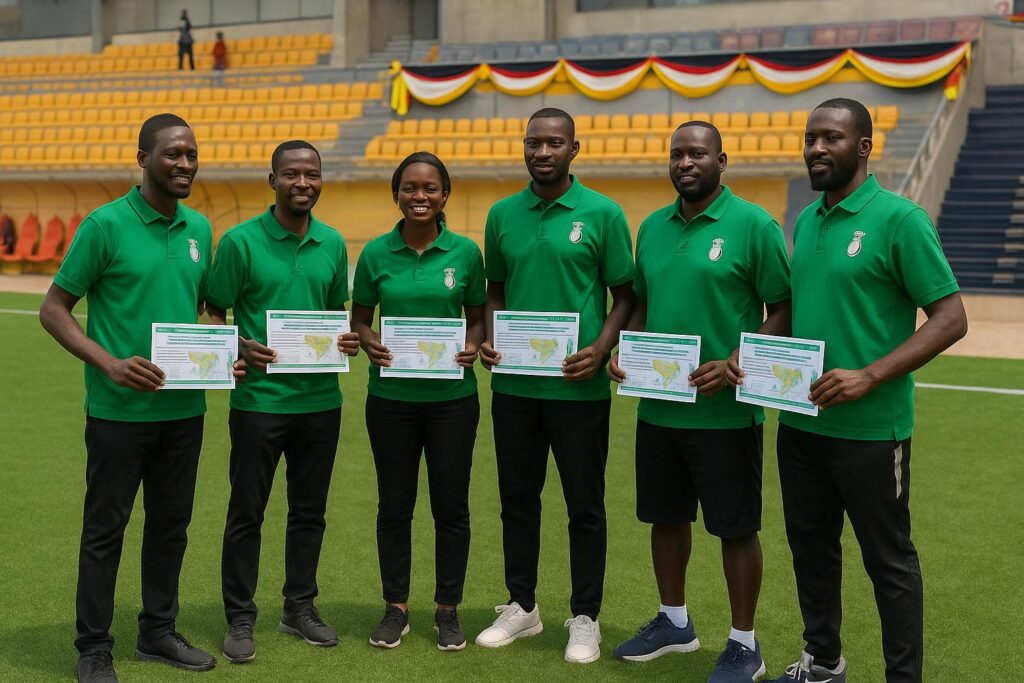Breaking Barriers in Juba
On a humid afternoon at Juba Stadium, Esther Kide Kute Peace zipped up her tracksuit and joined a cohort of 22 newly certified coaches. She was the only woman. For South Sudanese fans, the moment felt like watching a glass ceiling crack in real time.
CAF C Diploma: More Than Paper
Award of the CAF C Diploma came after a ten-day workshop led by instructors from FIFA and the South Sudan Football Federation. Sessions blended tactics, nutrition, and anti-doping protocols, underscoring that modern coaching is as much science as instinct.
Lifelong Mission of Inclusion
Esther remembers neighbourhood boys telling her to watch from the sidelines. She refused. ‘I want boys and girls to understand the pitch is for everyone,’ she says. The new credential arms her with technical authority to reinforce that credo in schools, academies, and eventually professional clubs.
Role Models Multiply
Kide joins three pioneering women already holding Federation badges. Together they form a visible quartet on touchlines once reserved for men. Their presence, observers note, normalises female leadership and widens the talent funnel for the national women’s team preparing for CECAFA qualifiers.
Institutional Backing and Vision
SSFF President Augustino Maduot Parek calls coaches ‘architects of future champions.’ The federation’s partnership with CAF aligns with a broader government plan to use sport for social cohesion after years of conflict. Well-trained staff, officials argue, can turn community tournaments into structured development pathways.
Looking Ahead
Esther’s immediate target is earning the CAF B badge within two years. Long term, she envisions a national centre where girls receive elite coaching without leaving home. ‘If opportunity exists locally, dreams stay alive,’ she notes, her eyes fixed on children playing just beyond the touchline.


